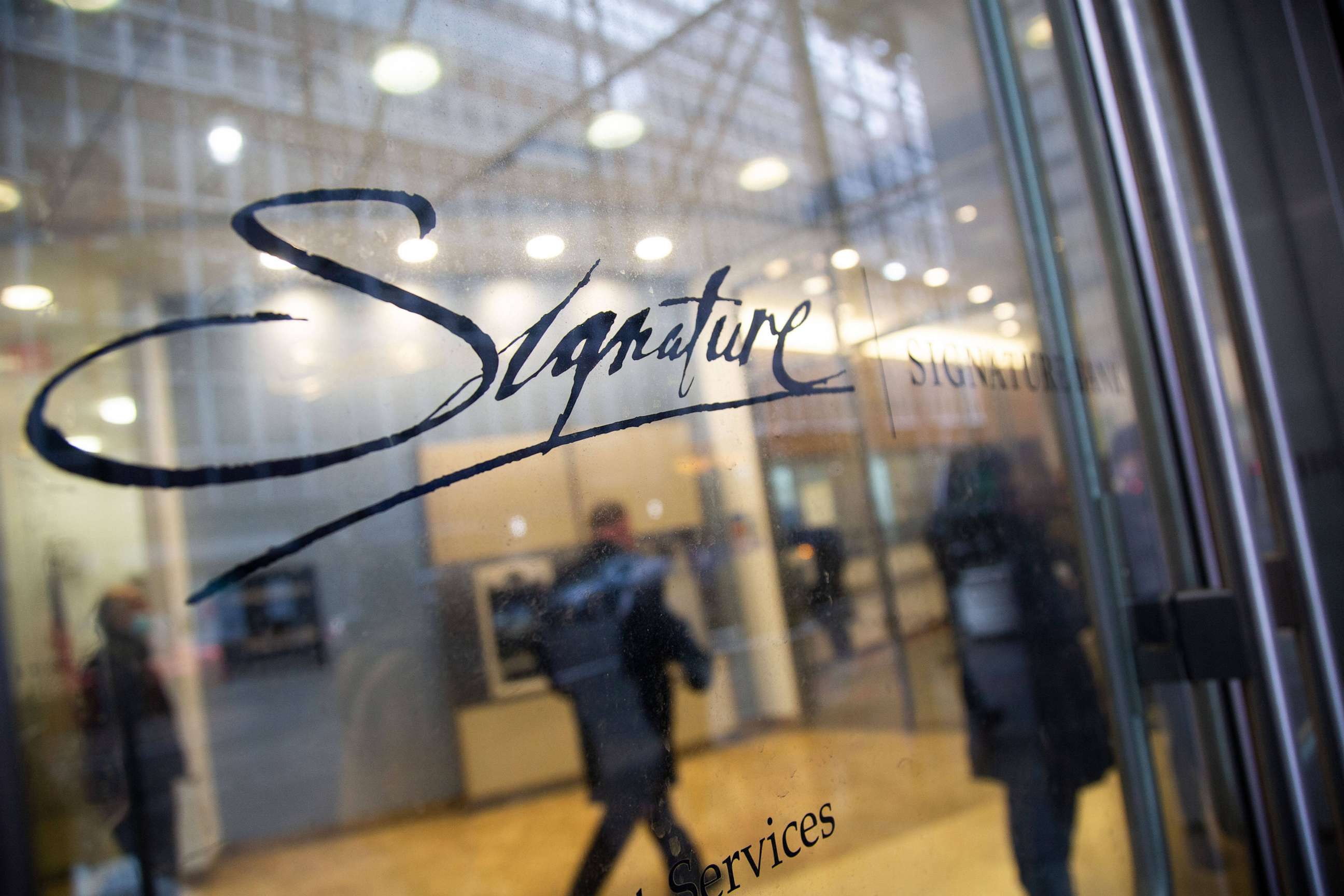Experts call cryptocurrency a 'bystander' in SVB, Signature Bank collapses
In the wake of last year's collapse of cryptocurrency exchange FTX, the collapse this week of Silicon Valley Bank and Signature Bank -- representing the second and third largest bank failures in U.S. history -- has renewed lingering questions about what role cryptocurrency is playing in financial sector failures.
Signature Bank, which is known for dealing in cryptocurrency, came under fire last year during the collapse of FTX and crypto hedge fund Alameda Research. At Silicon Valley Bank, which is known for serving the tech and startup industries since its founding 40 years ago, the withdrawal of large cryptocurrency deposits added to the fear fueling the bank run that ended in the bank's collapse Friday.
However, experts told ABC News that cryptocurrency did not play a leading role in the banks' failures -- although the collapses will have ramifications in the cryptocurrency sector.
"I don't think crypto has much of a role," said David Yermack, professor of finance at NYU's Stern School of Business. "Crypto is more or less a bystander in all of this, just like all the other companies who had deposited money."
Yermack, who teaches a course on cryptocurrency and blockchains, said that while the situation remains fluid, two main factors appear to have contributed to the failures: The banks that failed were too concentrated in one industry, and the deregulation of banking over the last five or six years has weakened regulations.
"In the case of Silicon Valley Bank, [the concentration] would be the West Coast technology industry," Yermack told ABC News. "And if you've got a group of customers who can't pay back their loans, and they're all correlated with each other, suddenly they all can't pay you back together -- that makes those loans a lot less valuable."
Boston College law professor Patricia McCoy said the bank's collapse was hastened by its large holdings of the cryptocurrency USDC, which is managed by the financial technology company Circle Internet Financial.

"At Silicon Valley Bank, really, the only role that the crypto industry played was this big deposit by Circle, which was very prone to run risk," McCoy said. "When Circle became nervous that Silicon Valley Bank was in trouble, its natural response would be to immediately withdraw that entire very large deposit."
"Silicon Valley Bank did not have the money -- the cash -- to pay all the withdrawal requests," said McCoy. "So, the fact that Circle had such a large deposit, and it was a type of client that was prone to panic, intensified the bank run at Silicon Valley Bank."
On the recent deregulation of banking, Yermack pointed to the banks' investment of large amounts of capital into Treasury bonds, which are typically very safe. However, said Yermack, "because interest rates changed a lot in the last year or so, those bonds lost value -- and under the accounting rules, the banks could still count them at 100 cents on the dollar."
Simply put, Yermack said, the banks did not have to account for the depreciation in the value of the bonds, which made them look much safer than they really were.
"This gets right to the heart of the issue about how banks are supervised and regulated -- that they really should have had to write those bonds down to value in real time, and make the problems more apparent much earlier," he said.
"As somebody who deals with financial data every day, I think everything should be marked to market value," said Yermack. "And to the extent it's not, you run the risk of misleading people, and it seems in this case it was the banking regulators who were misled, and they just said, 'Oh, those are government bonds. Those are the safest assets.'"
"But government bonds can lose value just like anything else," Yermack said. "And I think ... the regulators were sort of caught off guard -- and unaware -- by this."




